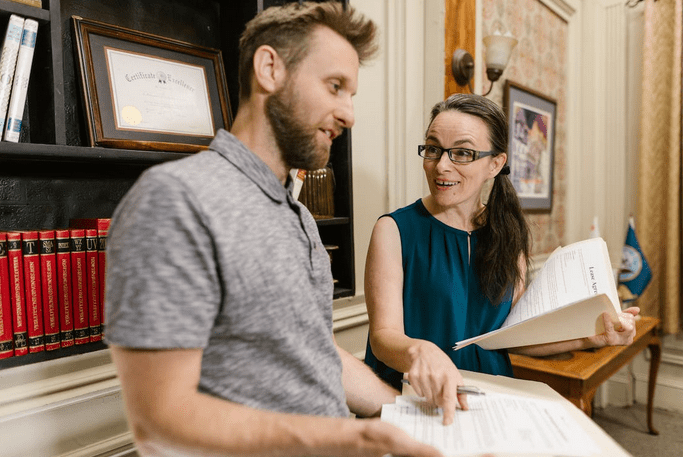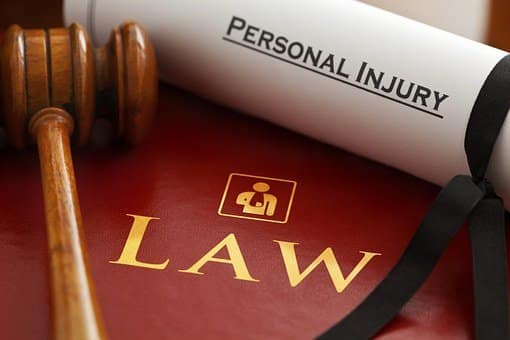Common Property Disputes and How to Avoid Them
Owning property comes with many responsibilities, and misunderstandings can quickly escalate into disputes. Whether it’s between neighbors, tenants, or co-owners, property conflicts can be stressful, costly, and time-consuming. Common disputes often involve boundaries, shared spaces, maintenance responsibilities, or noise complaints. Understanding the root causes of these conflicts and taking proactive steps to prevent them can save homeowners and property managers unnecessary trouble. By addressing potential issues early and maintaining clear communication, you can protect both relationships and investments while ensuring a smoother property experience.
Boundary and Fence Disagreements
 One of the most frequent property disputes arises from unclear boundaries. Homeowners may have differing interpretations of property lines, leading to conflicts over fences, landscaping, or extensions. Even small misunderstandings can escalate if not addressed promptly. To prevent these disputes, it’s essential to verify property lines with a professional survey before making any changes near borders. It creates a clear reference point that can settle disagreements before they start.
One of the most frequent property disputes arises from unclear boundaries. Homeowners may have differing interpretations of property lines, leading to conflicts over fences, landscaping, or extensions. Even small misunderstandings can escalate if not addressed promptly. To prevent these disputes, it’s essential to verify property lines with a professional survey before making any changes near borders. It creates a clear reference point that can settle disagreements before they start.
When planning fences or landscaping, communicating openly with neighbors is key. Discussing intentions and gaining agreement on shared boundaries fosters goodwill and reduces the risk of conflicts. Written agreements or formal easements can provide additional legal clarity, ensuring both parties understand responsibilities and limitations. Clear documentation protects all involved and minimizes misunderstandings over property limits.
Issues with Shared Spaces and Maintenance
Shared spaces, such as driveways, gardens, or common walls, are another source of tension. Conflicts often arise over maintenance responsibilities, cost-sharing, or usage rights. Without clear agreements, disputes can become personal and difficult to resolve. Creating formal arrangements in writing helps outline who is responsible for upkeep, repairs, and related expenses, ensuring fairness and accountability. Regular communication about maintenance schedules or upcoming work can also prevent surprises. Discussing plans in advance, seeking consensus on expenditures, and documenting agreements help maintain trust. Being proactive reduces friction and prevents small issues from escalating into serious disputes. Property owners who manage shared spaces thoughtfully often avoid long-term conflicts.
Noise, Nuisances, and Lifestyle Conflicts

Noise complaints, pets, and other lifestyle-related issues are frequent triggers for property disputes. What one person considers normal may be disruptive to another. Addressing these concerns early and respectfully is crucial to maintaining neighborly relationships. Setting reasonable expectations and following local ordinances regarding noise, pet ownership, or use of shared facilities minimizes the risk of conflict. In addition, documenting complaints or incidents can help resolve disagreements if they escalate. Open dialogue, empathy, and compromise often lead to satisfactory solutions without legal intervention. Taking preventative steps helps avoid tension, preserves relationships, and contributes to a more peaceful living environment.
Property disputes are common, but avoidable with preparation, communication, and clear agreements. Understanding potential sources of conflict and addressing them proactively reduces stress and preserves relationships. Documentation, surveys, and written agreements provide clarity and legal protection, while respectful communication fosters cooperation and understanding. By taking these steps, property owners and tenants can minimize disputes, protect their investments, and enjoy a harmonious living or working environment.…






 Negotiation is a critical skill that lawyers bring to the table to maintain balance in contractual relationships. It’s all about finding common ground and reaching mutually beneficial agreements. Lawyers use their expertise to navigate through complex negotiations, ensuring that both parties are satisfied with the contract terms. One of the key aspects of negotiation is effective communication. Lawyers carefully listen to their client’s needs and objectives and those of the other party involved. They then work diligently to find solutions that address these concerns while still protecting their client’s best interests.
Negotiation is a critical skill that lawyers bring to the table to maintain balance in contractual relationships. It’s all about finding common ground and reaching mutually beneficial agreements. Lawyers use their expertise to navigate through complex negotiations, ensuring that both parties are satisfied with the contract terms. One of the key aspects of negotiation is effective communication. Lawyers carefully listen to their client’s needs and objectives and those of the other party involved. They then work diligently to find solutions that address these concerns while still protecting their client’s best interests. When it comes to maintaining balance in contractual relationships, one crucial aspect that lawyers focus on is due diligence. In simple terms, due diligence refers to carefully examining and investigating all relevant facts and information before entering into a contract or business transaction. During this process, lawyers dig deeper to uncover any potential risks or liabilities associated with the agreement. They leave no stone unturned as they meticulously review legal documents, financial records, contracts, and other pertinent data.
When it comes to maintaining balance in contractual relationships, one crucial aspect that lawyers focus on is due diligence. In simple terms, due diligence refers to carefully examining and investigating all relevant facts and information before entering into a contract or business transaction. During this process, lawyers dig deeper to uncover any potential risks or liabilities associated with the agreement. They leave no stone unturned as they meticulously review legal documents, financial records, contracts, and other pertinent data.


 The first step is to research the individual or organization that you will be serving legal documents to. This includes their full name, address, and contact information. Once you have this information, you can then proceed to serve the papers.
The first step is to research the individual or organization that you will be serving legal documents to. This includes their full name, address, and contact information. Once you have this information, you can then proceed to serve the papers.

 One of the best things you can do for yourself is to join or create a support group. This will allow you to share your experiences with other domestic abuse victims and learn from their stories. It’s also a great way to find emotional support and build relationships with people who understand what you’re going through. They can also help donate food, money, and clothing if all of your stuff is back home with the abusers.
One of the best things you can do for yourself is to join or create a support group. This will allow you to share your experiences with other domestic abuse victims and learn from their stories. It’s also a great way to find emotional support and build relationships with people who understand what you’re going through. They can also help donate food, money, and clothing if all of your stuff is back home with the abusers. Everyone knows that violent acts against another human being mean jail time, but what about when it’s your spouse? Unfortunately, in many cases, domestic abuse is not considered a crime. However, there are some situations where it can be classified as a crime, such as if there is an active restraining order against the abuser. If you’re not sure whether or not your situation qualifies as domestic abuse, contact an attorney in California who understand the laws and can give you guidance. Typically, your abusers could land 5 years of jail time.
Everyone knows that violent acts against another human being mean jail time, but what about when it’s your spouse? Unfortunately, in many cases, domestic abuse is not considered a crime. However, there are some situations where it can be classified as a crime, such as if there is an active restraining order against the abuser. If you’re not sure whether or not your situation qualifies as domestic abuse, contact an attorney in California who understand the laws and can give you guidance. Typically, your abusers could land 5 years of jail time.
 One of the main reasons why many people have failed to repair bad credit on their own is because they lack the knowledge on how to approach the matter. On the other hand, credit repair companies specialize in improving lousy credit, and as such, they have the right experience to repair your bad credit.
One of the main reasons why many people have failed to repair bad credit on their own is because they lack the knowledge on how to approach the matter. On the other hand, credit repair companies specialize in improving lousy credit, and as such, they have the right experience to repair your bad credit. To successfully repair your bad credit, you need to learn about the things you should adjust in your life and several other concepts that you can apply to enhance your credit. Unfortunately, this can be time-consuming, and effectively applying the concept can be difficult, especially when leading a busy life.
To successfully repair your bad credit, you need to learn about the things you should adjust in your life and several other concepts that you can apply to enhance your credit. Unfortunately, this can be time-consuming, and effectively applying the concept can be difficult, especially when leading a busy life.
 The first factor you should consider when selecting a lawyer to help you get out of a timeshare contract is qualification. It is important to note that
The first factor you should consider when selecting a lawyer to help you get out of a timeshare contract is qualification. It is important to note that  Apart from the qualification of a lawyer, you should consider the amount of money they charge. Each person has an amount they can comfortably pay. Take some time and do some research before selecting any lawyer. Learn the amount of cash each lawyer asks for and choose one lawyer that charges a reasonable price.
Apart from the qualification of a lawyer, you should consider the amount of money they charge. Each person has an amount they can comfortably pay. Take some time and do some research before selecting any lawyer. Learn the amount of cash each lawyer asks for and choose one lawyer that charges a reasonable price.




 The use of renewable energy has a positive impact on the environment. That is because it generates minimal emissions. The idea of using renewables such as geothermal energy, wind, and the sun is recommended to save the planet. The task is to convert renewable energy sources into fuels and electricity. There are different technologies that cater to various aspects of producing power. Nowadays, you can find solar panels designed for industrial applications. Such solutions have unlocked efficient power cycles that increase the production of the PV power plant.
The use of renewable energy has a positive impact on the environment. That is because it generates minimal emissions. The idea of using renewables such as geothermal energy, wind, and the sun is recommended to save the planet. The task is to convert renewable energy sources into fuels and electricity. There are different technologies that cater to various aspects of producing power. Nowadays, you can find solar panels designed for industrial applications. Such solutions have unlocked efficient power cycles that increase the production of the PV power plant. This is another important technology that is shaping the energy sector. In fact, power providers, distribution companies, and stakeholders can benefit from the blockchain. This is necessary to ensure that transactions pass through a secure network. In this way, they help eliminate loss. Also, blockchain provides a certain degree of equality.
This is another important technology that is shaping the energy sector. In fact, power providers, distribution companies, and stakeholders can benefit from the blockchain. This is necessary to ensure that transactions pass through a secure network. In this way, they help eliminate loss. Also, blockchain provides a certain degree of equality.
 When going through a divorce or child custody case, the process can affect you. You might make decisions that are based on emotions and not logic. Making emotional pleas for a court process can be very costly and can affect the outcome of your case.
When going through a divorce or child custody case, the process can affect you. You might make decisions that are based on emotions and not logic. Making emotional pleas for a court process can be very costly and can affect the outcome of your case.






 Before filing for bankruptcy, there are a few things worth considering. Moreover, following the right channels and available all the required information can help you qualify faster for bankruptcy so that you get time to fix your finances. Unfortunately, many people hurry with the filing process and end up losing privileges, hurting their reputation for things that they could avoid. Knowing what to do and not to might not be easy for you since you lack experience in the bankruptcy filing. Nevertheless, you deserve all the help you could get, and that is the purpose of this article. A few standard approaches for filing for bankruptcy exist. Follow these tips for filing a successful bankruptcy.
Before filing for bankruptcy, there are a few things worth considering. Moreover, following the right channels and available all the required information can help you qualify faster for bankruptcy so that you get time to fix your finances. Unfortunately, many people hurry with the filing process and end up losing privileges, hurting their reputation for things that they could avoid. Knowing what to do and not to might not be easy for you since you lack experience in the bankruptcy filing. Nevertheless, you deserve all the help you could get, and that is the purpose of this article. A few standard approaches for filing for bankruptcy exist. Follow these tips for filing a successful bankruptcy.
 Background checks allow you to lower chances of employees leaving work because they cannot do it or when they find out they are a good fit. Many companies lose so much time as they focus on deliverables in their operating schedules. The hidden costs of hiring and replacing employees are too much for a company to bare repeatedly. Background checks ensure that the company understands the risks that employees will pose once they start working in the firm. The company could screen out applicants who may seem not interested in the line of work the job position would be offering them. It gets a chance to recruit the right person not only for the job but also for the career.
Background checks allow you to lower chances of employees leaving work because they cannot do it or when they find out they are a good fit. Many companies lose so much time as they focus on deliverables in their operating schedules. The hidden costs of hiring and replacing employees are too much for a company to bare repeatedly. Background checks ensure that the company understands the risks that employees will pose once they start working in the firm. The company could screen out applicants who may seem not interested in the line of work the job position would be offering them. It gets a chance to recruit the right person not only for the job but also for the career.